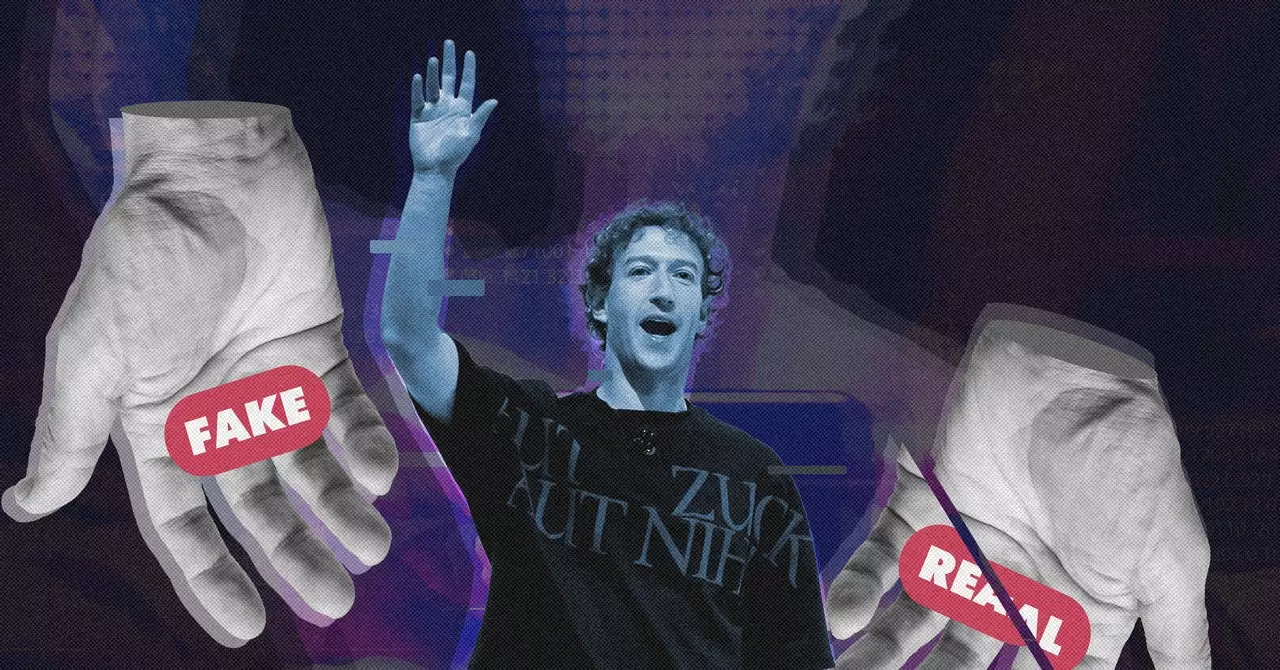Meta, the parent company of Facebook and Instagram, is undergoing a seismic shift in its approach to misinformation, largely viewed as a direct reaction to the impending second presidential term of Donald Trump. In a radical departure from its previous strategies, the tech giant announced it will halt its investment in fact-checking programs, placing the burden of discerning fact from fiction into the hands of its user base. This decision was accompanied by inflammatory remarks from Meta’s CEO Mark Zuckerberg that suggest the failure of traditional fact-checkers—whom he accuses of political bias—has eroded trust more than it has built it. Such a stance raises questions about what implications this will have on public discourse, especially among vulnerable communities like the Latino population in the United States.
Zuckerberg’s stance may stem from a desire to align with users who feel alienated by fact-checkers, yet this move has been received with skepticism by many experts in the field. Laura Zommer, an experienced figure from the Spanish-speaking fact-checking community, argues vehemently against Zuckerberg’s assertions, emphasizing that far from censoring information, fact-checkers strive to provide context that enables more informed decision-making among the public. This contradiction in Meta’s decision—abandoning a program it once touted as useful—leaves many confused about the motives behind this abrupt change.
The Latino community faces a unique set of challenges as this decision unfolds. Zommer points out that during Trump’s prior campaign, narratives laden with misinformation regarding immigrants gained traction, framing them as fraudulent actors in society. This trend poses worrying implications for the upcoming election, as disinformation risks resurfacing with vigor, particularly as anti-immigrant sentiment is leveraged politically. The danger lies not only in misleading narratives, but also in potential real-world consequences for targeted communities facing increased scrutiny.
Furthermore, as disinformation proliferates with alarming speed, the role of credible fact-checkers becomes even more crucial. The rise in deepfake technologies and manipulated media content highlights the need for reliable sources of information, especially for marginalized groups who may already feel disenfranchised. As history has shown, unchecked misinformation can exacerbate existing societal divides, making it essential that those tamping down on misrepresentations are supported rather than dismantled.
The financial repercussions of Meta’s decision mirror systemic vulnerabilities within Latin America’s news ecosystem. Pablo Medina, an influential figure in investigative journalism, highlights the precarious position fact-checking organizations now find themselves in, given that Meta’s funding provided financial lifelines for many media outlets. With the withdrawal of this support, many organizations face the existential threat of closure unless they can diversify their income streams quickly.
The precarious situation of these organizations echoes a wider trend of disinvestment in fact-checking and journalism across the region. The potential loss of these platforms not only jeopardizes local journalism but also the communities that rely on them for accurate information. As media organizations collapse, the already tenuous grip on reliable news can loosen, leaving room for unchecked narratives to dominate.
Zuckerberg’s rhetoric on “secret courts” further adds a layer of complicated dynamics regarding misinformation and censorship, particularly in Latin America. Tai Nalon, a prominent figure in global fact-checking, contends that Zuckerberg’s remarks align too closely with far-right discourses designed to undermine credible journalism. Characterizing fact-checking as a form of censorship diminishes the rigorous effort undertaken by professionals to combat misinformation.
The landscape in which these organizations operate is far from static; ongoing antitrust challenges faced by Meta may also be a catalyst for this shift. By distancing itself from established fact-checking entities, Meta may be seeking to curry favor with political interests amidst scrutiny over its monopolistic practices.
As Meta retreats from its fact-checking commitments, society must grapple with the repercussions of this decision. With a potential rise in targeted misinformation campaigns, especially against marginalized communities like Latinos, a clarion call emerges for a collective effort to shore up journalistic integrity and support independent fact-checking.
The road ahead demands collaboration among stakeholders, including journalists, NGOs, and engaged citizens, to develop frameworks capable of counteracting misinformation effectively. Only through proactive measures can societies hope to navigate the murky waters of disinformation in an era where trust in media is more crucial than ever.

